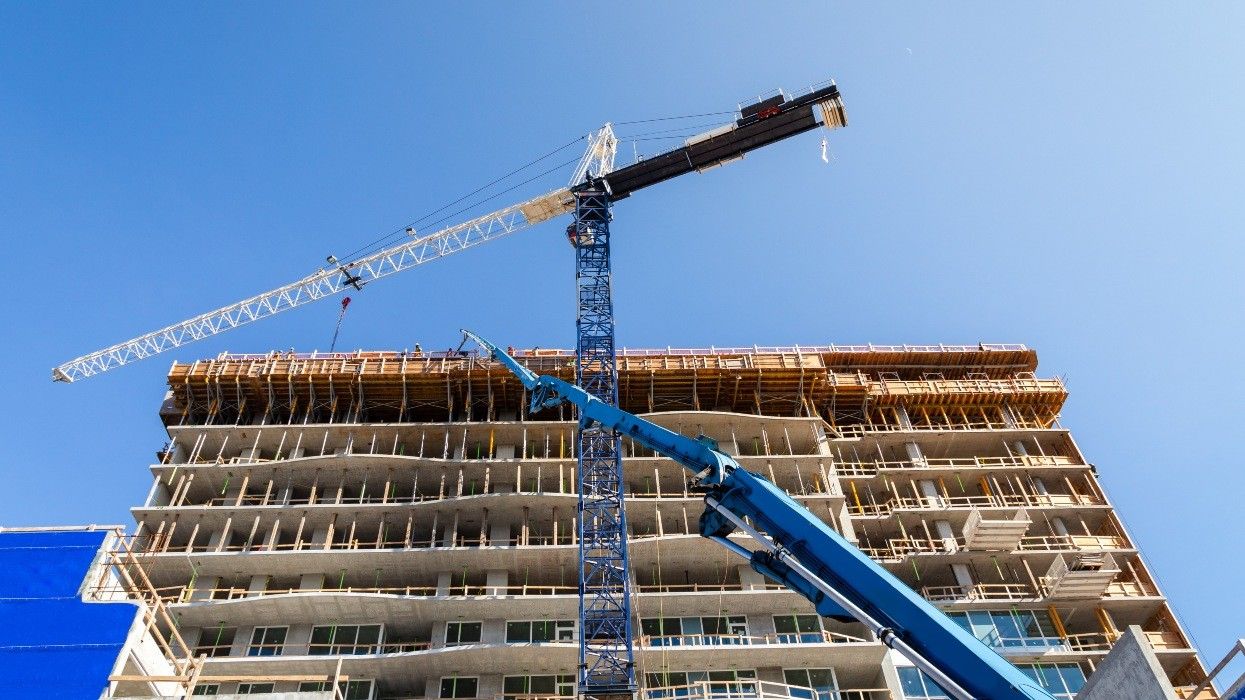It remains to be seen how long Canada's trade war with the United States will last and what the extent of the impacts will be, but one effect can already be clearly seen: investment has come to a standstill, at least in the housing development sector.
"The last six months I think the investment has been really cautious, and ever since the first announcement of tariffs, there's been a total pause, and there's gonna be a pause until the economy settles," says Evan Allegretto, President of British Columbia operations for Vancouver-based developer Intracorp Homes, which also operates in Seattle, Washington; Newport Beach, California; and Austin, Texas.
Allegretto says he believed the economy was moving forward in the right direction ahead of the election that saw Donald Trump return to power. After the election, he says he saw a pause on investment while everyone was waiting to see what Trump was going to do, followed by a bigger pause as soon as Trump first raised the possibility of tariffs (and threatened to annex Canada).
After originally saying the tariffs would be introduced as soon as he entered office on January 20, the tariffs were officially announced on Saturday, February 1 and are set to come into effect on February 4, when a 10% tariff will be imposed on energy exports and a 25% tariff will be imposed on other Canadian goods.
In a press release on February 1, the White House said "President Trump is taking bold action to hold Mexico, Canada, and China accountable to their promises of halting illegal immigration and stopping poisonous fentanyl and other drugs from flowing into our country" and that the tariffs will remain in place "until the crisis is alleviated."
With the amorphous timeline and Trump's notorious volatility, nobody really knows how long the tariffs will be in place.
The Government of Canada is now actively working on its suite of retaliative measures, meaning Canada is now actively engaged in a trade with the United States. The response has united Canadians across the country in a way that has been relatively rare in this age of political polarization and has gained broad support, but will likely add to the chaos.
"If it was just a US tariff, I don't think it impacts the building industry too much here in Vancouver or Canada," Allegretto said, who says he would like to see diplomacy rather than a trade war. "I think a lot of the pricing, if it goes up, would be compressed in the margins of trades and subtrades. But if its a trade war, it's totally passed through in the contracts and goes straight to the developer. I think it will stop construction."
He estimates the increase in costs to be around 6% to 8%, after construction costs were generally flattening prior to all of this. In terms of the supply chain, Allegretto says most of the mechanical and electrical components such as elevators — big line items — come from the US, among other things, and that he expects the prices of materials that are sourced from other countries to also increase due to the effects of supply and demand. A trade war would also have a negative impact on inflation and interest rates, he says.
Allegretto raised the issue at an Urban Development Institute forecast event in late-January, where the other panelists — Daryl Simpson of Townline, Eric Carlson of Anthem Properties, and Jennifer Podmore Russell of Nch'kay Development — agreed. Simpson said he believes the first few months of this year are essentially a "write-off," Carlson said "malaise" was going to be the theme of 2025, while Podmore Russell emphasized "pragmaticism."
"With these proformas, the margins have been so tight already and so if the margins get tighter, you're probably putting in more equity to make less, so I think developers will not do that and I also think investors will definitely not put in money when they can't quantify their returns," said Allegretto, speaking on investment from outside investors and also investment from developers themselves. "It's a tough spot. If the tariffs stay for a long time and the worsening of economics, the investment just won't come."
- How Trump's Tariffs Could Impact Canadian Real Estate ›
- 2025 Housing Outlook "Uncertain" Amid Geopolitical Shifts ›
- OHBA To "Minimize" Steel, Aluminum Tariff Impacts On Housing ›
- What Trumps' Tariffs Could Mean For Interest Rates And Housing ›
- Interest Rate To Drop To 2% By July As Tariffs Go Into Effect: BMO ›
- Sales Recovery In Greater Vancouver Real Estate Market Stalls ›
- Trump To Double Tariffs On Canadian Steel, Aluminum Imports ›
- Only Thing Missing From Vancouver Market "Made For Buyers" Is... Buyers ›





















